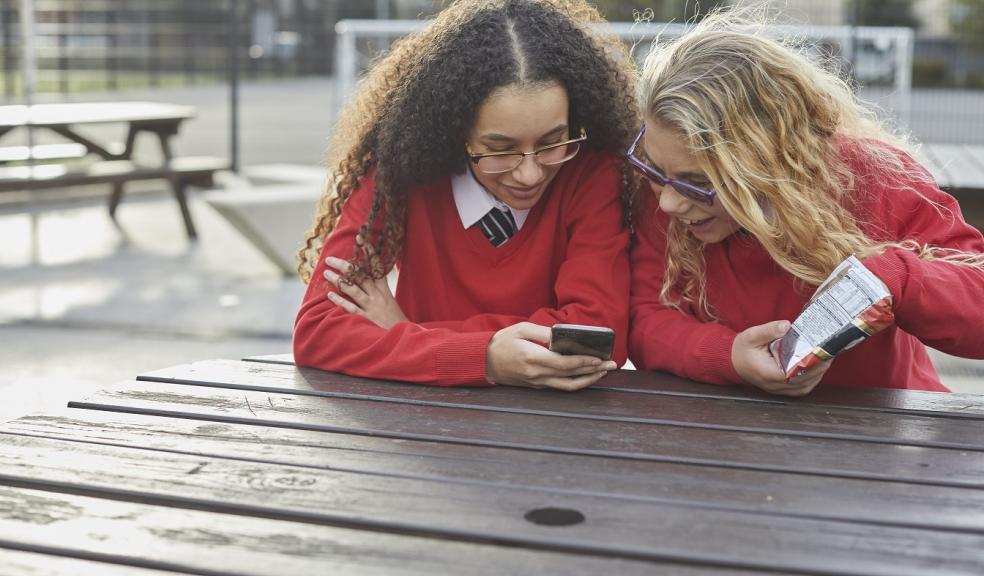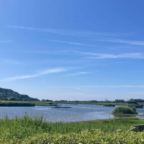
NSPCC launches new service in Plymouth to tackle online sexual abuse of children
The NSPCC in Plymouth has announced its new service this Safer Internet Day (Tuesday 11 February) to protect children and young people in their digital worlds and prevent online sexual abuse.
In Ctrl is a group work programme for children and young people that aims to help them stay safe online.
Children’s Service Practitioner, Helen Huntley will be involved in the delivery of the programme. She says: “We will work with local school pupils to explore issues such as healthy relationships and friendships online, enabling them to develop skills that will help protect them from grooming and exploitation.
“We will be empowering children to ask themselves those really important questions when they go online, and increase their confidence in knowing what to do or who to speak to if they come across something that makes them feel uncomfortable.”
The first In Ctrl sessions are taking place at Marine Academy Plymouth, as part of the children’s charity’s Together for Childhood work in the city, but if it’s successful it will be offered to more city schools for students aged between 9 and 13.
In taking a trauma informed approach, it is designed to offer a safe space to children and young people to promote learning, build understanding of risk and increase resilience, in their online and offline worlds.
Online sexual abuse can happen anywhere that allows digital communication, such as social networks, text messages and messaging apps, email, online chats, voice chat in games and comments on live streaming apps.
Strategic Service Centre Manager for the NSPCC in Plymouth, Ollie Mackie says: “Too many children contact our Childline service not knowing where to turn having been exploited online.
“We want children and young people to have a happier and safer life, knowing that whenever they talk to a trusted adult, in school or at home, their concerns will be listened to.”
The programme compliments the work of the charity’s Schools Service team in Plymouth, that visits local primary schools delivering free ‘Speak out. Stay safe.’ assemblies and workshops that help children know about the different types of abuse, how to recognise the signs, and explore trusted adults they can speak to if they ever have a worry or concern.
For some children asking for help and support can be a challenge, especially if they have a limited support network around them or have faced past adversities.
Helen added: “The online world is a great place for children to learn, and it can be exciting for them if they are exploring new social media platforms.
“As exciting as all this can be, children can find it hard to know what to do sometimes and situations can easily feel quickly out of their control, especially if they have had a worrying online experience.
“It’s important that we help children and young people understand that people might not be who they say they are, how to be share aware and to feel confident in taking practical steps such as using privacy settings, turning off location settings, or asking for help.”
The In Ctrl programme has been piloted in other locations across the UK and had positive feedback from the young people who have been involved.
Ollie added: “On average, social media platforms are used up to 90 times a day to groom and abuse children and share child abuse images. This proves more needs to be done to stop abuse.
“We need legislation to keep children safe from abuse online, and at the NSPCC, through our Wild West Web campaign, we are demanding the new Government leads the way worldwide, bringing forward laws to become the first country in the world to protect children from abuse online.”
The NSPCC is calling on people to email their MP urging them to back a new Bill that paves the way for a proper independent watchdog to regulate online harms against children.
Anyone concerned about an adult engaging inappropriately with a young person online can call the NSPCC Helpline for free and confidential advice on 0808 800 5000 or email help@nspcc.org.uk.
Children can contact Childline on 0800 1111 or childline.org.uk 24/7, 365 days a year, and speak to a counsellor about any worry or concern they may have.













